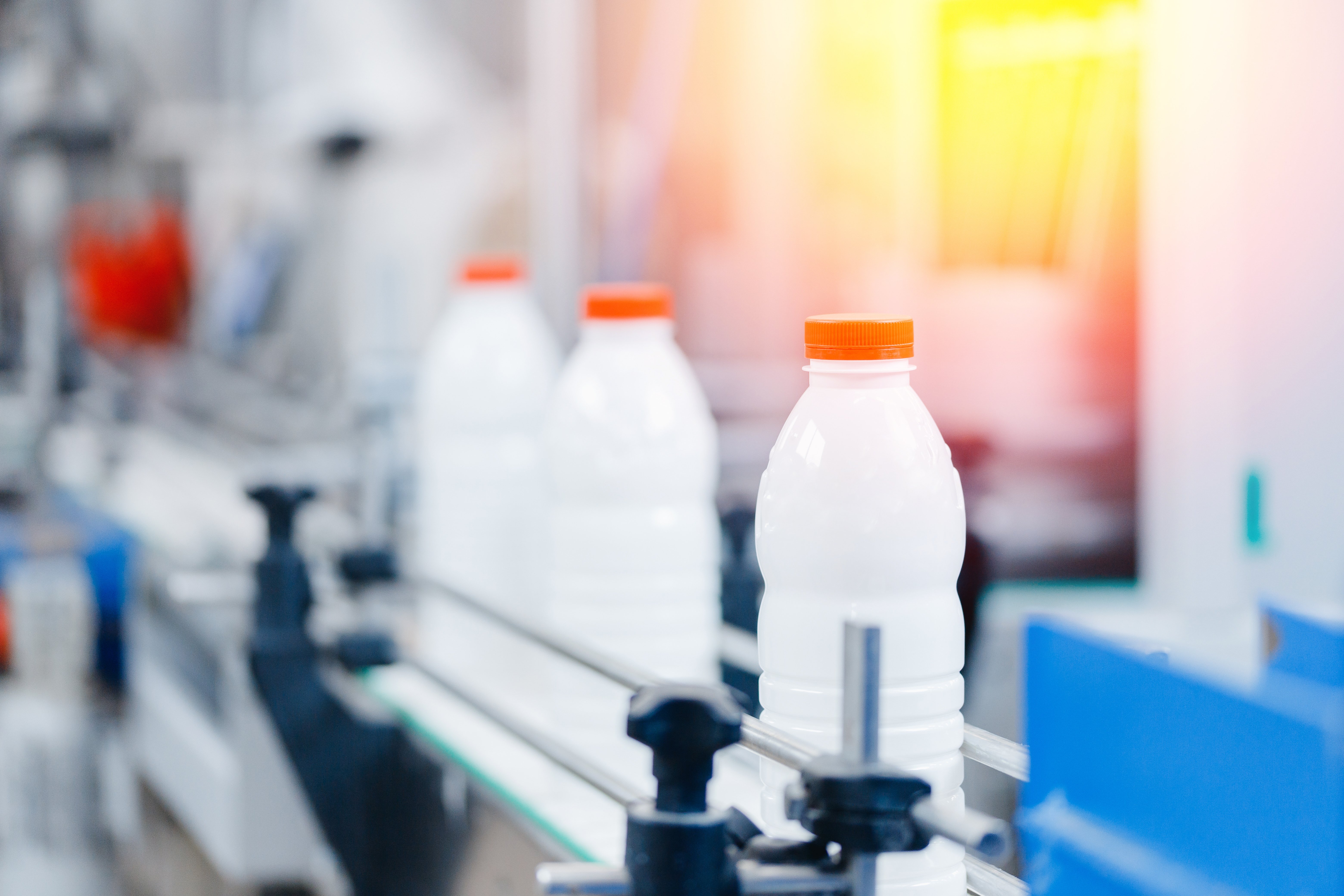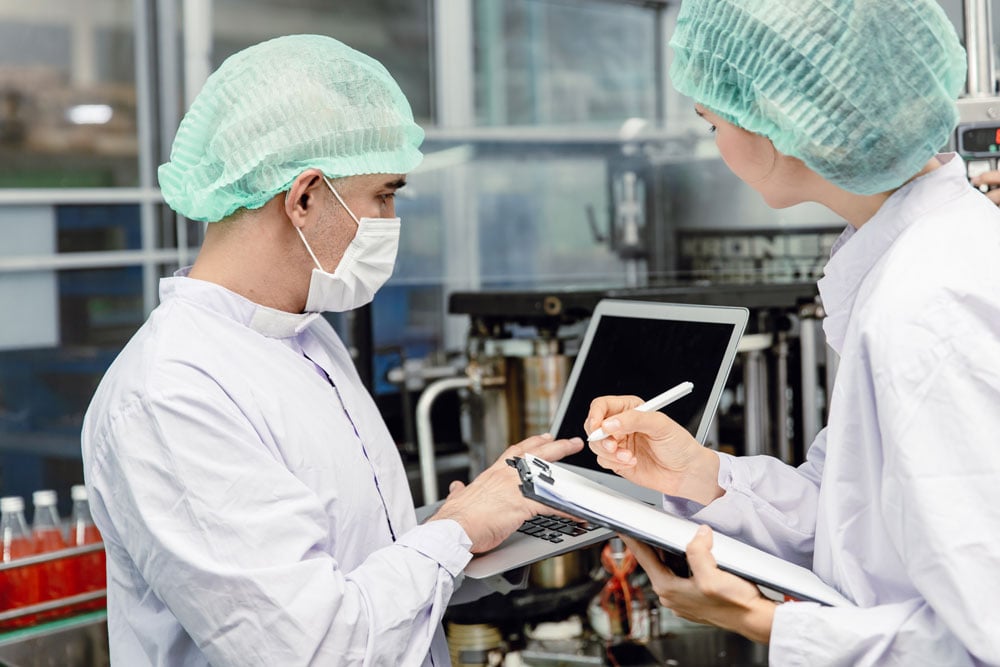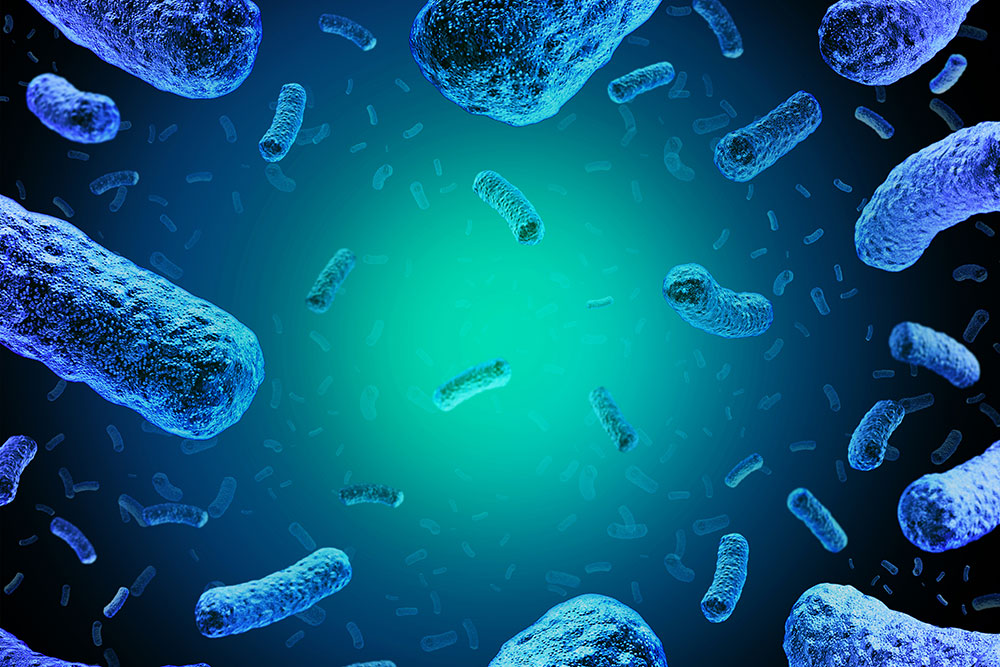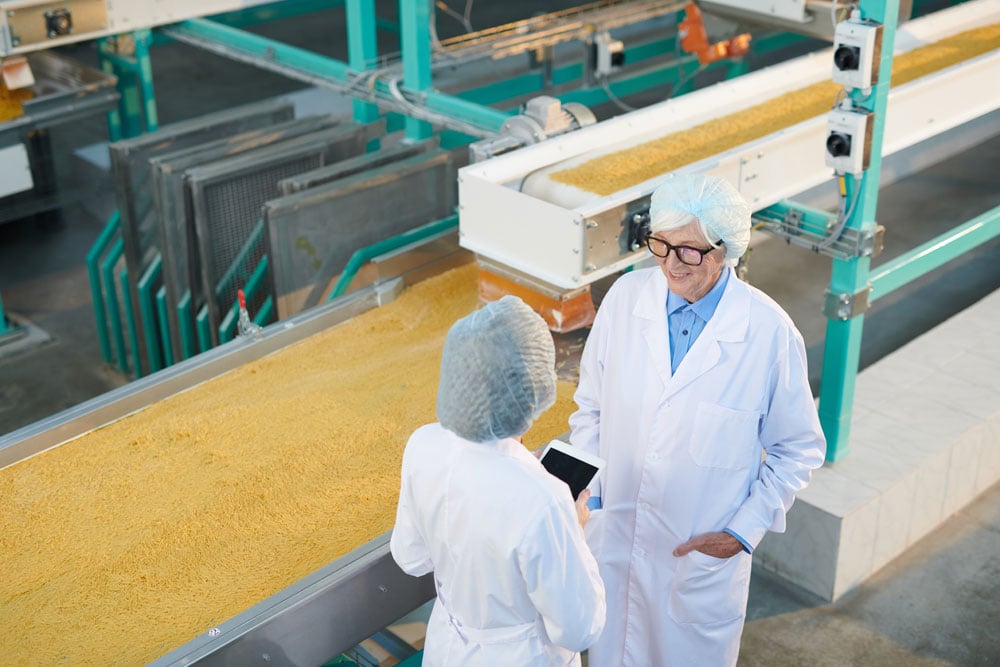If you’re operating a food processing and production facility, then food safety is of the highest importance. Preventing bacterial accumulation and other pathogens from contaminating your products is integral to the safety of your workers and the consumers who eat your food.
This means that you need a “food-safe” environment in which to produce your food products. That term gets thrown around a lot in the industry, but what does it actually mean? Here’s what you need to know about food-safe practices and products and how they help keep your facility, your employees, and your consumers safe.
What does ‘food-safe’ mean?
Food-safe and food safety mean handling, preparing, and storing food in a way that optimally reduces the risk of consumers and those that prepare the food becoming sick from foodborne illnesses (listeriosis, E.coli, salmonella, etc.).
In other words, food-safe means sanitary, hygienic, and clean. But food safety in food processing and production facilities in the US goes above and beyond this fairly simple definition. Facilities must also be FDA compliant in order to pass inspections and continue operating.
What does FDA compliant mean?
FDA compliance essentially takes food safety to the “next level,” with stringent guidelines and requirements that food production facilities must satisfy in order to continue operating.
The FDA has an enormous and comprehensive compliance manual, which outlines requirements and regulations surrounding every aspect of food safety and production, from practices to material handling to bacterial limitations and beyond.
The guidelines apply to any and all food products, as well as byproducts and other materials that may come into contact with food during production, including animal blood, packaging materials, machine components, and much, much more.
Facilities are required to meet compliance requirements or they may face fines or even shutdowns depending on the severity of infractions.
Top considerations for creating a food-safe facility

Every single process in your food processing facility has to consider food safety, and while that may seem like an enormous undertaking, there are several key starting points that you can easily build off of to make sure your whole operation is as safe as possible.
- Proper cleaning procedures for surfaces, utensils, and equipment
- High standards of personal hygiene, including hand washing and clean uniforms
- Adhering to temperature standards for storing, chilling, freezing, and heating foods
- Proper food storage, including environments and equipment
- Safe, effective pest control
- Understanding food allergies, food intolerances, and food poisoning
Maintaining high stands in all of the above will help to ensure that your facility is food-safe, FDA compliant, and ready to pass an inspection.
Food safety and drainage
Your drain system is the most used piece of equipment in your entire operation, and it sees it all: raw foods, wastewater, dirt, debris, and anything else that may hit the floor and be swept or flushed into the channel.
If your drains see all that invariably non-food-safe refuse, then how can they be at all hygienic? This is where FoodSafe Drains comes in (we’d be remiss if we didn’t mention how we can help your operation).
Our drains, both trench and slot, are designed with hygiene in mind. They’re made from bacteria-resistant stainless steel, with rounded bottom edges and a pre-sloped build, to eliminate both standing water and harbor points for bacteria.
While trench drains do have heavy metal grates (not ideal for high-risk areas of your facility), our slot drains are incredibly easy to clean. Our custom brush and paddle accessories allow for cleaning to be done in minutes, and our clean-in-place (CIP) option allows you to connect a water line for automatic Flush-Flo cleaning.
Questions?
Contact a FoodSafe Drains expert today, and let’s work together to promote the highest standard of food safety in your food production operation.


